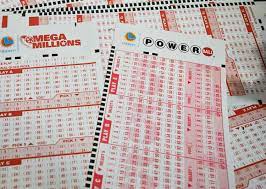I bought a lottery ticket yesterday. I know. I know. I was a math teacher. I know better. I get it. The odds of winning the hundreds of millions of dollars are effectively zero. I understand the expected value theorem. And I know that games of chance are attacks on people who aren’t good at arithmetic. I am also well aware that my two dollars doesn’t go to directly to education. Buy a lottery ticket, support education has a nice ring to it. Buy a lottery ticket so that elected officials can use the money for other projects is more accurate if less catchy.
But I wasn’t thinking about budget allocations or textbook purchases when I plunked down my two samoleans yesterday. The reason I bought the lottery ticket was so that I could have a conversation with my wife about what we would do if we won. First and foremost, we could improve the lives of hungry people at home and abroad. We could make significant contributions to the Against Malaria Fund. We could multiply our donations to our favorite charities. We could help build homes for families who are down on their luck. We could be secret philanthropists. How great would that be?
The wasted two dollars is about conversation. It’s not about thinking we’re going to win.
Sometimes children behave in a way that can only be characterized as over-the-top oopid-stay, contrary to their best interests, not to mention annoying as heck. You don’t have to look too far to observe your progeny leaving empty pizza boxes in their rooms, staying up late, ignoring their academic responsibilities, messing up in uncountable self-defeating ways. Let’s admit this student with a C in trigonometry said no admissions officer at a highly selective college ever.
It’s important to understand the why underneath the behavior. Why are the kids crying? Why are they lying? Why aren’t they doing well in math?
One school of parenting suggests that only the result matters. Stop fussing! Stop flunking! I call this the Pull up those pajamas! School of Parenting from Animal House, an iconic film but not one replete with characters you want your kids to emulate.
Whereas my thought is to help the kid figure out where the tears and the fears come from. Which leads the conversation to a fundamental conceptualization about child rearing specifically and human nature in general. If you think that your kids are basically evil and that–without your constant supervision–will choose to put cherry bombs in toilets, then screaming at them to do their math homework might make sense. I turned my back and there was a cat covered in strawberry jam stuck to the ceiling fan. On the other hand, if you believe that your kids love you, want to please you, and already know that understanding the law of sines is in their best interest, then you might want to sit with them as they struggle through chapter seven.
And you might want to turn off your phone and be present with your child struggling to determine how tall the tree—47 feet away at an angle of 35 degrees–is.
I might not be smart enough to avoid wasting money on a lottery ticket, but I am savvy enough to believe in my kids. My children know my expectations and beliefs, and—if I encourage rather than force them to find their own way—they will end up in the right place, with every reasonable insight into the law of sines.
That’s a much safer bet—with a better expected return—than buying a lottery ticket. Because while I could easily give away millions and end up with my same lifestyle after getting the right six numbers, there is no way I know to quantify the value of having a child who grows up healthy and whole.







One thought on “What are the Odds?”
Best one in a while. Layers on layers.